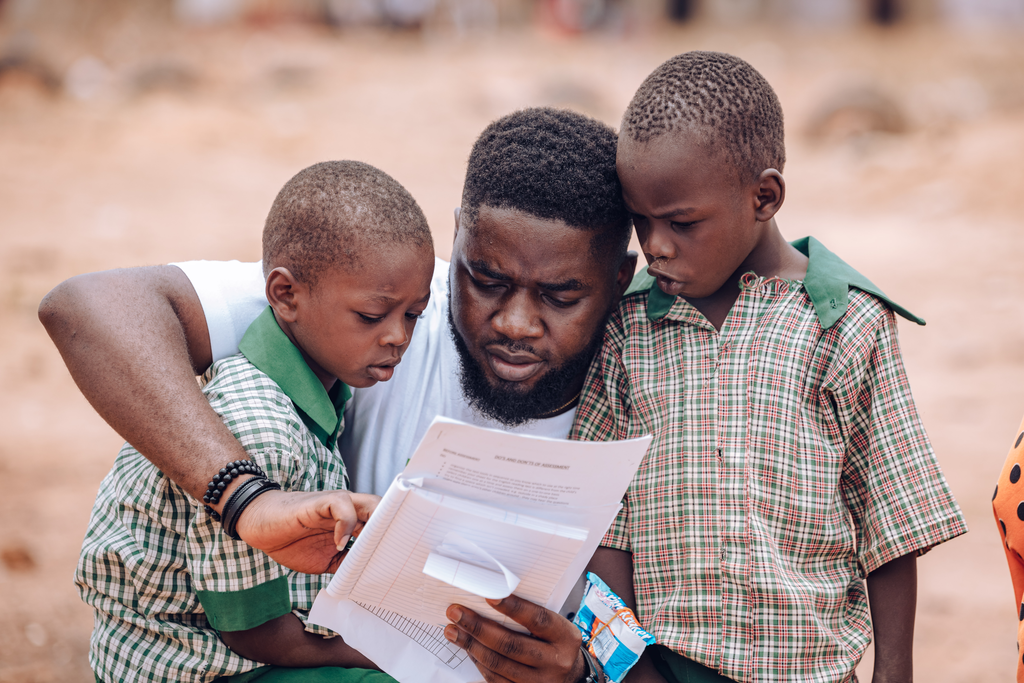Three actions that can help to end the global education crisis

Theirworld and our young campaigners are calling for decisive and long-lasting measures to come out of the historic Transforming Education Summit.
Theirworld is calling on world leaders to listen to the voices of young people – by committing next month to three crucial actions to help end the global education crisis.
International decision-makers will meet at the historic Transforming Education Summit, where the future of 258 million children out of school and millions more not learning basic skills is at stake.
It’s a once-in-a-generation opportunity and leaders must not make decisions without hearing what young people have to say. We launched the #LetMeLearn campaign to call for their voices, experiences and demands to be front and centre at the summit.
Based on our consultations with youth and education experts around the world, Theirworld wants leaders and government ministers to pledge action on:
- Early childhood education – by investing 10% of all education funding to this vital but underfunded sector
- Education for refugees and displaced people – by investing at least 6% to 10% of humanitarian assistance in education
- Funding for education – by launching the International Finance Facility for Education (IFFEd) as part of a new global finance plan to achieve education for all
Theirworld will be campaigning at the summit, which takes place during the United Nations General Assembly in New York. We’ll be helping to ensure young people’s voices are heard loud and clear, with some of our Global Youth Ambassadors (GYAs) attending and a special youth statement created for the event by our GYAs and signed by all 2,000-plus of them in more than 100 countries. The three-day summit includes a special youth day.
Mathilde Boulogne, a 19-year-old GYA from France, summed up the mood when she said: “I would say to ministers of education: ‘Don’t come to this summit if you are not prepared to deliver on what you promise. Don’t go home and stop thinking about it. Listen to the youth and remember what you promised’.”
Theirworld knows that a huge mobilisation of political will, innovation and resources will be needed to achieve the Sustainable Development Goal of inclusive, quality education for every child and youth by 2030.
That’s why we’re sharing our three asks during consultations ahead of and during the Transforming Education System. Here is a closer look at our calls to action.
1. Early childhood education
90% of a child’s brain develops before the age of five – but more than 175 million children are not in early childhood education. Sadly, most countries underfund early childhood education and donors allocate less than 1% of education aid towards it.
We believe every government should allocate a minimum of 10% of their education budgets to pre-primary education. Donor governments should do the same with their education aid. This would secure two years of free early childhood education for every child.
Hasibul Hasan, a 20-year-old GYA from Bangladesh, said: “The importance of early childhood education cannot be overstated. A child’s early years are the foundation for his or her future development, providing a strong base for lifelong learning and learning abilities, including cognitive and social development.”
2. Education for refugees and displaced people
Education is the first thing a refugee child loses but is often the last service to be restored. About 75 million children have their education disrupted due to emergencies such as conflicts and disasters every year.
And yet humanitarian spending on education lags far behind other sectors. While the share of humanitarian funding to education increased from a low of just 0.9% in 2000, it was only at 2.6% in 2019. A big increase in funding is absolutely crucial.
Miranda Ekema Ndolo, a 26-year-old GYA is originally from Cameroon and now lives in South Africa. She said: “As a result of the ongoing crisis in my community, my education was disrupted. Many of my classmates gave up – some were killed because they wanted to study, others jailed. The right to education should never be compromised by anyone.”
3. Funding for education
A new global education funding plan is needed. We want governments to increase their support for education, for the International Finance Facility for Education (IFFEd) to be launched and for the World Bank and donors to set and reach a 15% education investment total.
Gordon Brown, UN Special Envoy for Global Education, reinforced this when he spoke at the Transforming Education Pre-Summit in Paris in June. He said: “We need a fundamental shift. It’s got to be radical. It’s got to be irreversible. We need internationally to do far more to help countries spend and invest in education and we need international action collectively.”
Motunrayo Fatoke, a 24-year-old GYA from Nigeria, said: “We need to take affirmative actions and not just talk about it. I want to see leaders implement the decisions they are making and I want to see investment in education increase dramatically.”
Want to know more about IFFEd and how it works? Read our Education Finance Playbook and watch this short film.